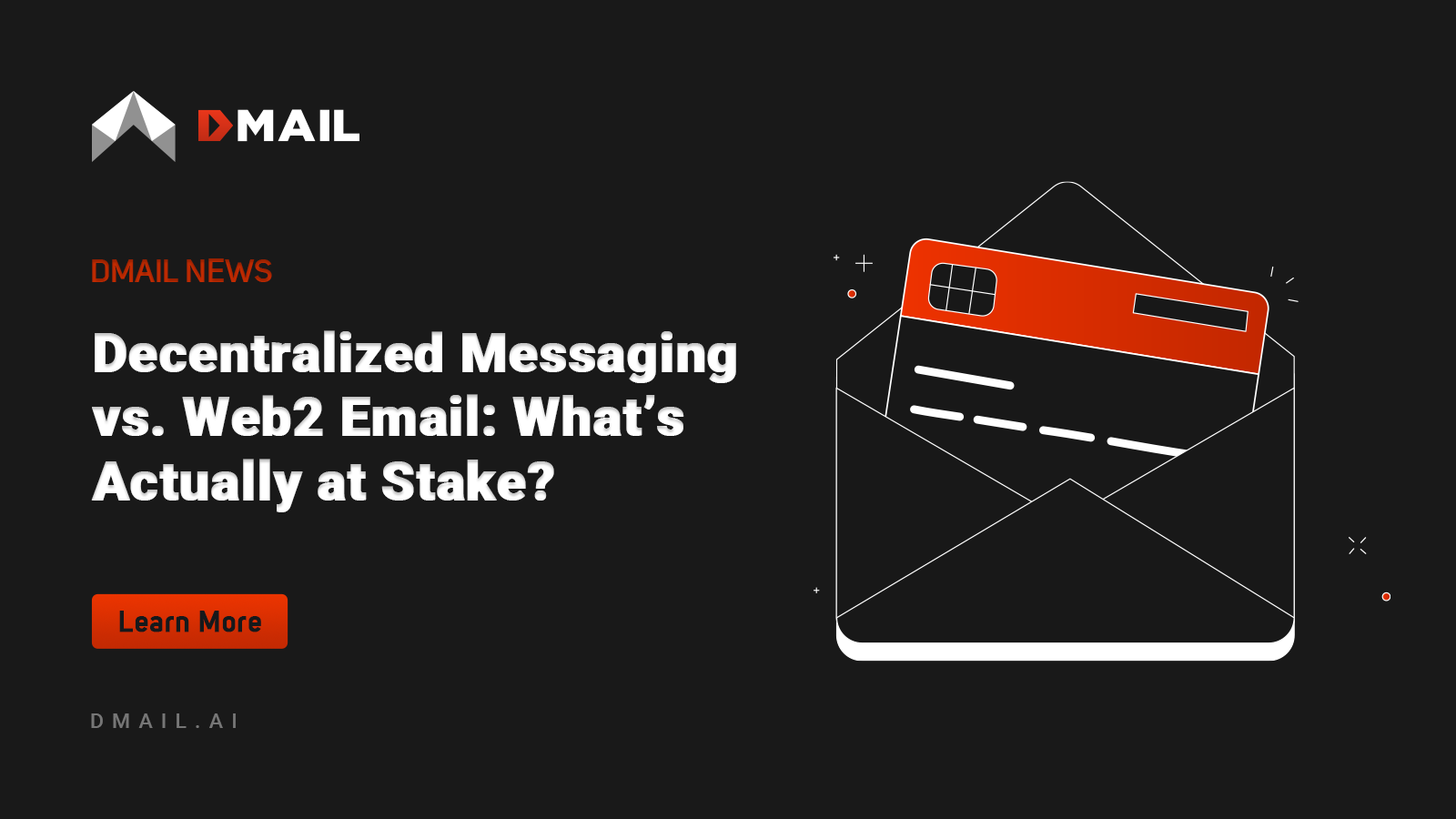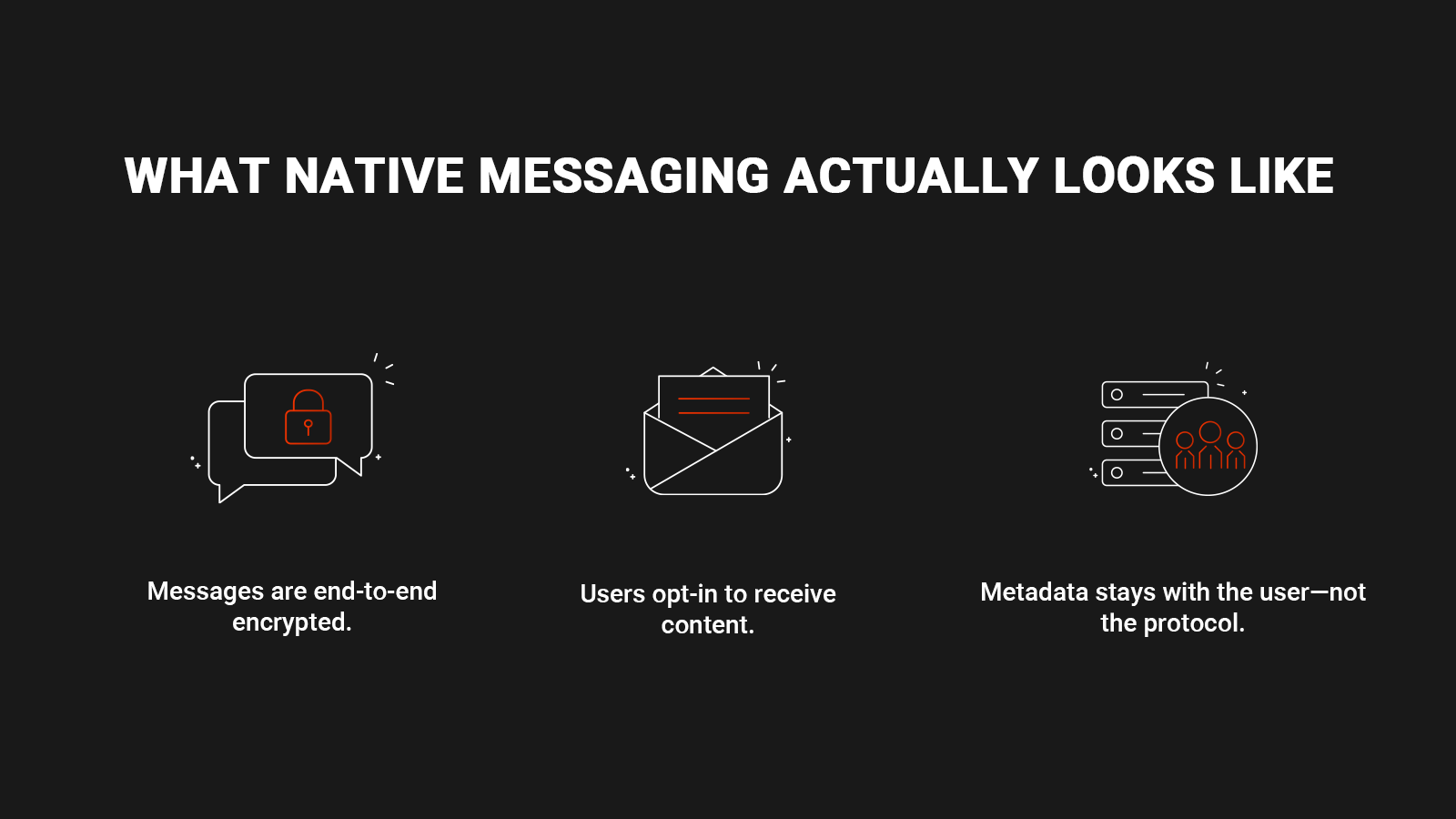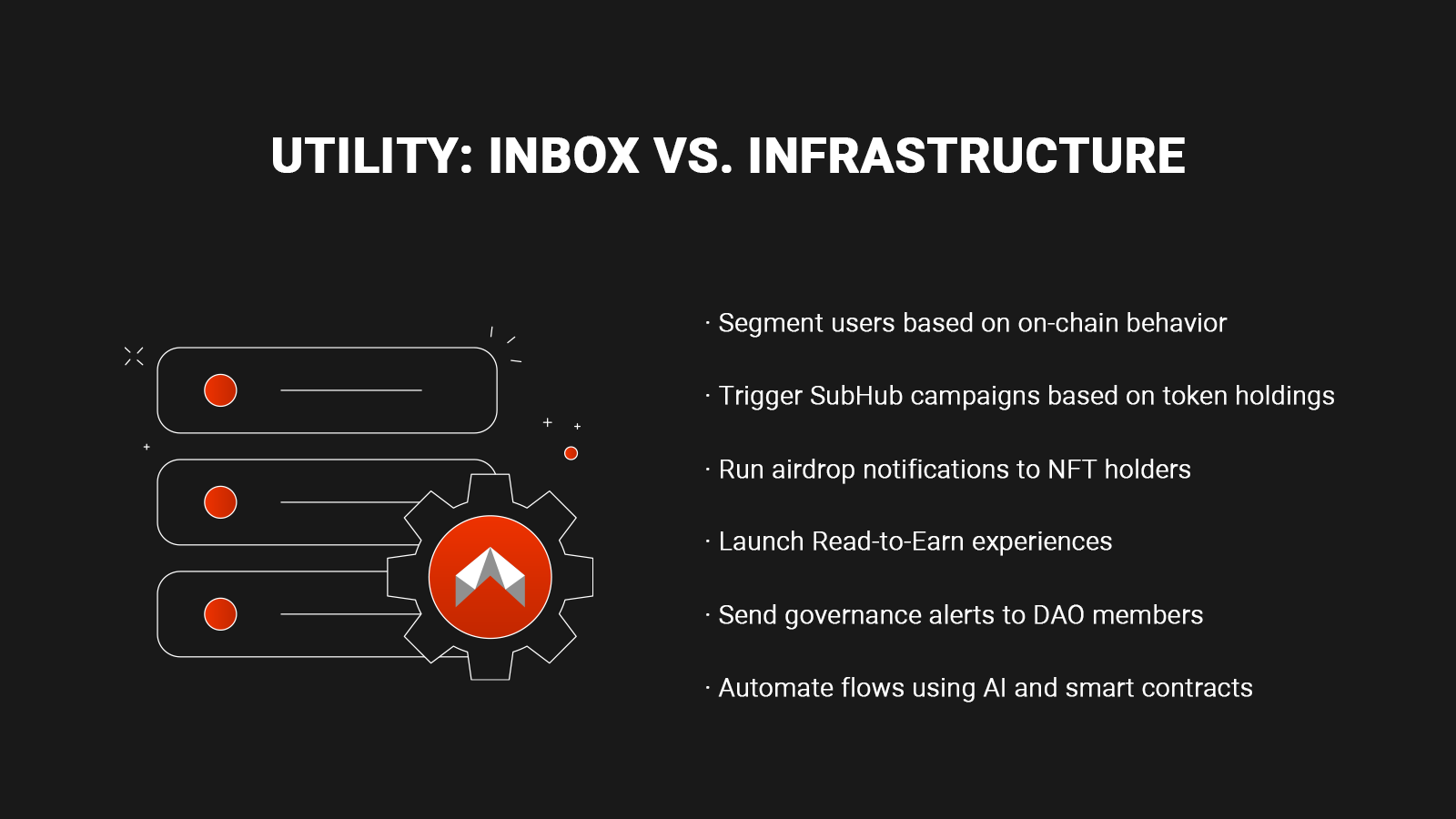Decentralized Messaging vs. Web2 Email: What’s Actually at Stake?

By Daniel James, COO of Dmail Network
Most people don’t realize how broken email really is—until they have something to protect.
Web2 email platforms like Gmail were built for convenience, not sovereignty. And for years, we accepted that trade-off: free storage in exchange for surveillance, simple UX in exchange for zero privacy, mass accessibility in exchange for vendor lock-in.
But in Web3, those trade-offs don’t fly.
Not when identity, value, and governance are on the line.
Not when your inbox becomes the front door to your digital life.
At Dmail, we believe communication deserves the same principles we’ve applied to finance, identity, and storage: decentralization, privacy, and user control.
Let’s take a hard look at what’s actually at stake—and why decentralized messaging is not just a better alternative, but a necessary evolution.
1. Ownership: You vs. The Platform
In Gmail, you don’t own your account. Google does.
They can ban you. Suspend you. Lock you out.
They can scan your inbox, serve you ads, or quietly train AI models on your data—all without asking.
With Dmail, your inbox is wallet-native. It lives on-chain.
No email. No password. No middleman.
If you control the wallet, you control the inbox. Full stop.
That’s more than a technical shift. That’s sovereignty.
2. Privacy: Surveillance vs. Encryption
Every message sent through Gmail is subject to algorithmic parsing, metadata collection, and behavioral profiling. Even “private” messages are monetized indirectly. Your inbox is a data mine—and you’re the product.

Dmail flips that model completely.
- Messages are end-to-end encrypted.
- Users opt-in to receive content.
- Metadata stays with the user—not the protocol.
We don’t track. We don’t scan. We don’t monetize your attention.
Because in Web3, trust is earned—not extracted.
3. Censorship Resistance: Terms of Service vs. Code
If your business, DAO, or project relies on Gmail, you’re one policy update away from invisibility. We’ve seen creators deplatformed. Founders locked out. DAOs throttled.
Dmail is censorship-resistant by design.
No centralized authority can delete your inbox, block your updates, or silence your governance announcements.
You don’t need permission to speak to your community.
You just need their wallet address.
4. Identity: Static vs. Dynamic
Traditional email gives you a static identifier—yourname@gmail.com—and ties it to centralized servers.
Dmail uses DIDs (Decentralized Identifiers) tied to wallets. That means your identity is portable, interoperable, and composable across dApps and chains.
You’re not locked into a platform—you’re empowered by an ecosystem.

5. Utility: Inbox vs. Infrastructure
Gmail is a tool. Dmail is a protocol.
With Gmail, your options are limited: send, receive, archive.
With Dmail, you can:
- Segment users based on on-chain behavior
- Trigger SubHub campaigns based on token holdings
- Run airdrop notifications to NFT holders
- Launch Read-to-Earn experiences
- Send governance alerts to DAO members
- Automate flows using AI and smart contracts
This isn’t messaging—it’s programmable communication infrastructure for Web3.
6. Value: Free to Use vs. Free to Exploit
Let’s be honest: Gmail is “free” in the same way Facebook is.
You’re not the customer—you’re the inventory.
With Dmail, you own your data. You opt in. You decide what gets monetized—and how.
In fact, Dmail is pioneering Read-to-Earn, turning your inbox from an attention sink into a value source. It’s not advertising—it’s alignment.
The Big Picture: Why It Matters Now
As more of Web3 moves toward decentralization—especially with DePIN, DAOs, and modular dApps—communication becomes the bottleneck. If you’re still relying on Web2 platforms to run a decentralized project, you’re walking on centralized sand.
Dmail exists to solve this. Not by reinventing email—but by building the native communication layer Web3 always needed.
Because the question isn’t whether messaging matters.
The question is: who controls it—and who benefits from it?
With Dmail, the answer is simple:
You do.

Connect with Dmail: Website | Twitter | Discord | Github | Telegram


Comments ()